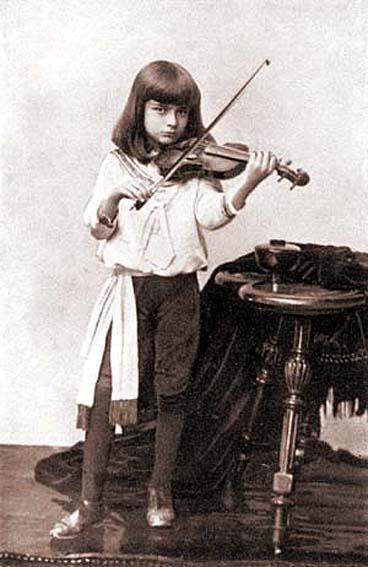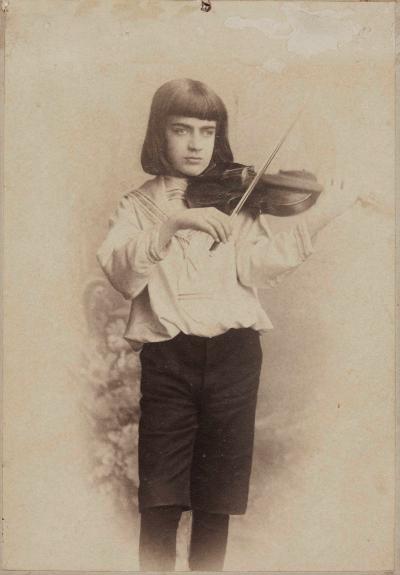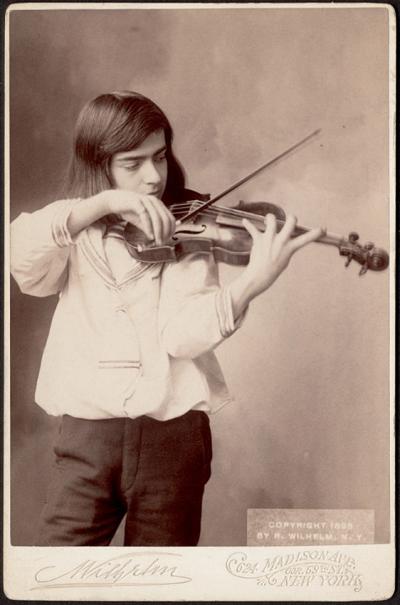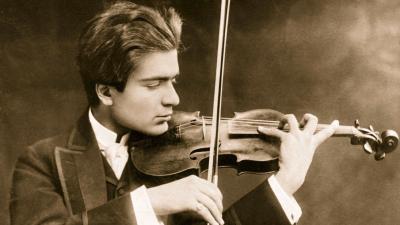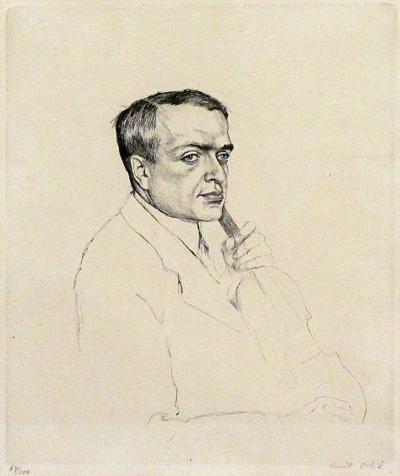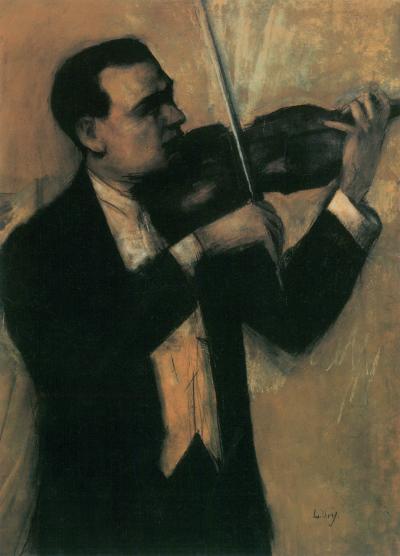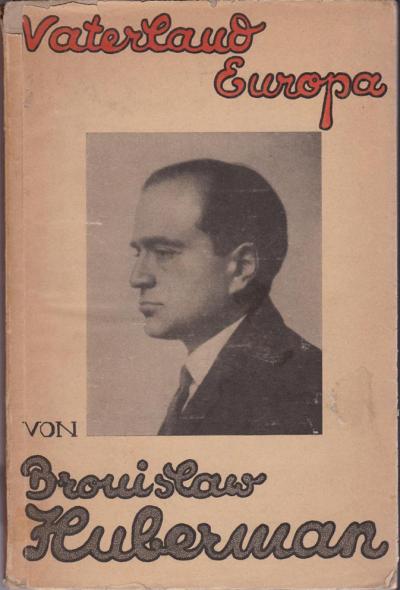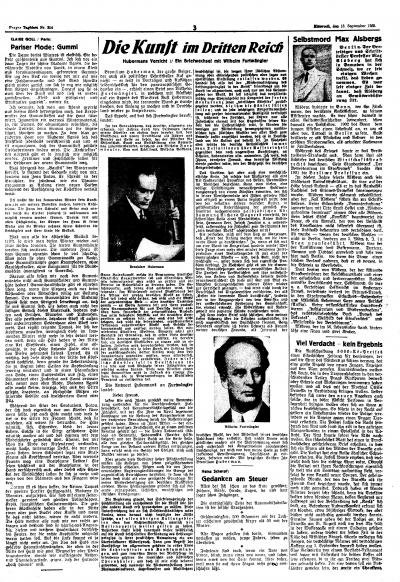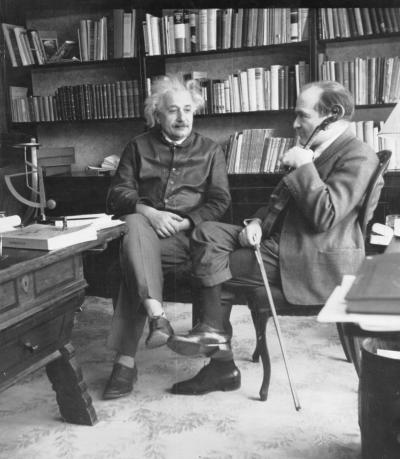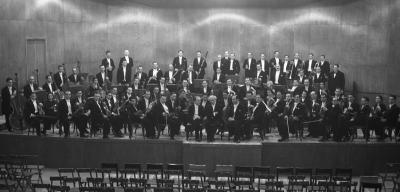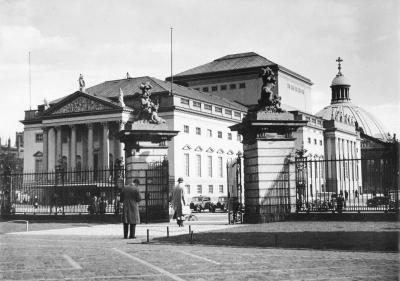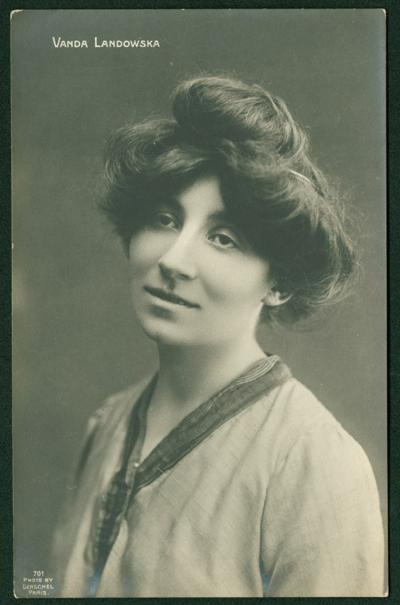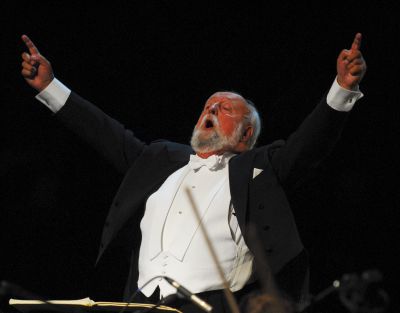Bronisław Huberman: From child prodigy to resistance fighter against National Socialism
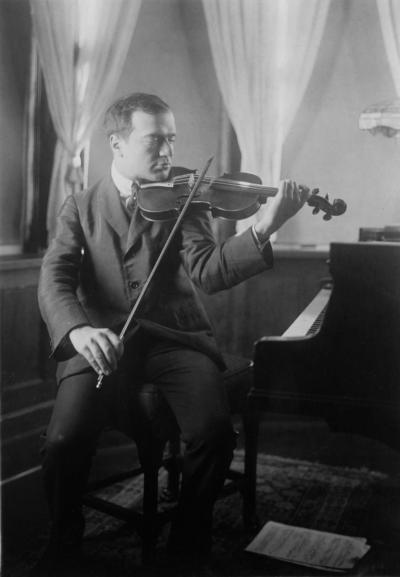
“I am a Pole, a Jew, a free artist and a pan-European. In each of these four character traits, I must see Hitlerism as my mortal enemy, I have to fight it with all the means at my disposal as my honour, my conscience, my reflection and my impulse dictate”, wrote Huberman on 18 October 1933 to a friend.[1] As a committed advocate of the pan-European idea propagated by the Japanese-Austrian philosopher Richard Coudenhove-Kalergi (1894-1972), Huberman himself had joined the fray by writing on this topic and had agitated publicly against Adolf Hitler since the 1930s. When his paper “Vaterland Europa” was published in Berlin in 1932, in October of that year he wrote about Hitler in the Neue Leipziger Zeitung whilst he was giving his last concerts in Germany: “The whole direction is wrong. His way is clearly the wrong way.”[2] When his friend, the director Wilhelm Furtwängler (1886-1954), approached him during the Johannes Brahms festival in Vienna in May 1933 and asked him to give a concert in Berlin during the coming season, Huberman declined. Furtwängler then wrote to him to invite him again, in response to which Huberman published a letter in the European and American daily newspapers in which he denounced the “race elite” prevailing in all cultural areas in Germany and the situation facing “those museum directors, conductors and music teachers” “who were dismissed on account of their Jewish heritage or differing political, or even simply apolitical attitude”; reasons, according to Huberman, “which immediately separate me from Germany” and which, despite the close relationship with his German friends and with German music, “created a “coercion of conscience to renounce Germany”.[3] Since this incident, if not before, the National Socialists’ official publications branded Huberman “a fanatical agitator against Germany”.[4]
Bronisław Huberman was born in Częstochowa in the Russian-ruled Congress Poland on 19 December 1882 to the lawyer Jankiel Huberman and his wife Aleksandra, née Goldman. His father, who worked in a law firm, barely made enough money to provide for his wife and their three sons. From an early age, Bronisław demonstrated an extraordinary musical talent which his family encouraged despite their financial problems – Huberman is known to have said that his father was a passionate music lover. As a six-year old he had lessons at the Warsaw Conservatory with violinist Mieczysław Michałowicz (1872-post 1935), who trained him for two years, as well as with Izydor Lotto (1840-1927), Maurycy Rosen (1868?-after 1938) and the concertmaster of the Warsaw opera orchestra, Stanisław Barcewicz (1858-1929). The following year he performed in public for the first time. (Fig. 1) The family once again saved up to allow him to travel to Berlin at the age of nine so that he could play in front of the violinist, conductor and composer Joseph Joachim (1831-1907), the most influential musician of his era and the founding director of the Royal Academic Conservatory of Music in Berlin. Although Joachim hated “child prodigies”, he was won over by the boy’s talent and opened every door for him. In summer 1892, Bronisław gave a concert in the Austrian spa resorts, such as Karlsbad, Marienbad and Ischl, and had an audience with the Emperor in Vienna.
[1] Huberman writing to an acquaintance, letter dated 18 October 1933, Huberman Estate, Felicja Blumental Music Center, Tel-Aviv, cited from von der Lühe 1997 (see Literature), page 11
[2] Vaterland Europa. Bronislaw Huberman über den Weg zu Wohlstand, hohen Löhnen, Warenabsatz, Freiheit und Frieden in Europa, in: Neue Leipziger Zeitung, No. 297, 23.10.1932, cited from von der Lühe 1997 (see Literature), page 11
[3] Die Kunst im Dritten Reich. Hubermans Verzicht ..., Prager Tagblatt dated 13 September 1933 (see Sources)
[4] “Seit 1933 ein fanatischer Hetzer gegen Deutschland.” (Lexikon der Juden in der Musik 1940, see Anti-Semitic publications)
